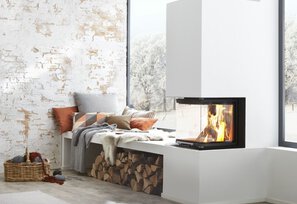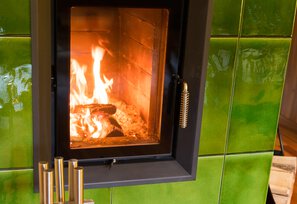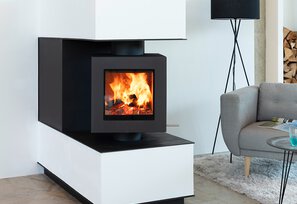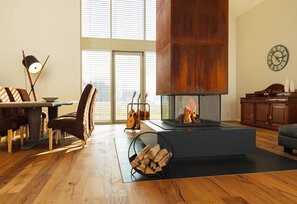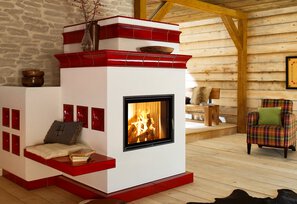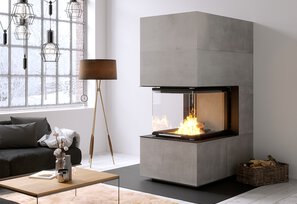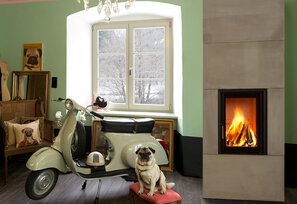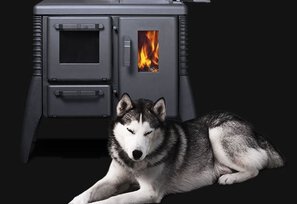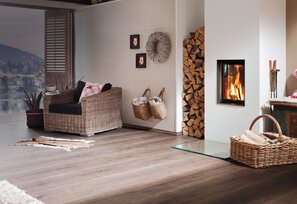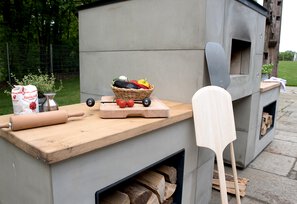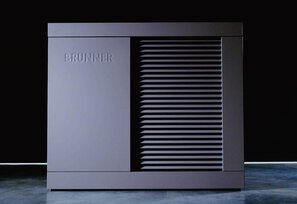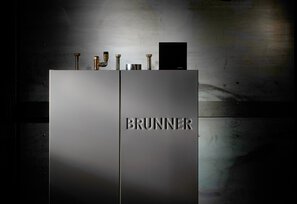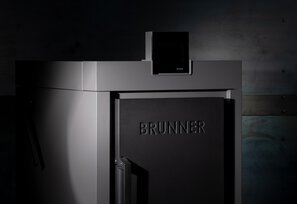Fireclay in the combustion chamber
What function does it have?
The term "fireclay" (also "chamotte") is often used synonymously for refractory bricks. When the expert speaks of fireclay, he means a natural product, a refractory material. It is very heat resistant and has excellent heat storage properties, ideal for fireplace and stove construction.
How wonderful a heated stove is - not only in winter. When the flames dance and pleasant warmth spreads throughout your own four walls. In the combustion chamber itself, however, temperatures of up to around 1,200 degrees Celsius prevail during combustion. A fireclay lining protects the combustion chamber and the stove body from heat damage. At the same time, it stores heat for hours, and the room temperature does not cool down immediately when the fire goes out. In the case of all-ceramic stoves, not only the combustion chamber but also the storage mass for the passage of the heating gases is made of fireclay.

What is fireclay
Fireclay is made of clay and aluminium oxides, it is natural rock. The mixing ratio determines the heat resistance. Fireclay consists of natural raw materials that are produced in the appropriate mixing ratio depending on their use.
Fireclay bricks are cream-coloured by nature, but they are also available dyed black, which is very trendy. Depending on the form in which the fireclay is made (as extruded fireclay or as casting clay), it has different properties. Extruded fireclay is the robust standard version that can also be exposed to high temperature loads. Casting clay, on the other hand, is accurate in shape and has a more attractive appearance, but is more suitable for lower load temperatures.
The BRUNNER heating inserts, for example, are equipped with these fireclay versions:

What to do when cracks appear?
Fireclay bricks are wear parts, they usually last 10 to 15 years, after which they must be replaced (depending on the intensity of use). Small cracks are not yet a cause for concern and are quite normal if the fireplace is used regularly. They are merely a blemish and have no negative effect on their function. However, if the material begins to crumble and break, disintegrate or detach from the slab, the fireclay must be replaced.
Because fireclay bricks are generally relatively brittle and sensitive, logs should be placed - not thrown - carefully in the combustion chamber and, if possible, they should not come into contact with the fireplace wall. Shocks and impacts quickly lead to cracks (mechanical damage).

Conclusion
Fireclay is a natural product. Due to its high heat resistance and very good heat storage properties, it is an excellent insulating material in the combustion chamber of a fireplace. It protects the stove and releases heat into the room even when the embers are extinguished. Fireclay is a 100 per cent natural raw material, a regional and an inexpensive product. With careful use, it only needs to be replaced after 15 years.
Place the wood carefully in the combustion chamber. Shocks and impacts against the fireclay can cause damage. To enjoy the firebricks for a long time, it is worth taking care when loading wood.
